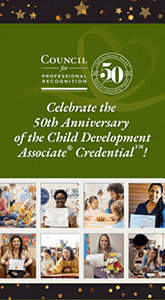February 11, 2025
More Reasons to Let Them Play
Letting kids be kids is the starting place for social justice. When we deprive children of play and care, and think they need skill and drill style instruction or reward and punishment kind of guidance, we are telling them they need to be fixed and changed and will be valued someday, when they become someone in the future. Social justice starts with seeing our young children as whole complete sovereign intelligent citizens with unquestioned belonging.
– Carol Garboden Murray, Illuminating Care
One of the authors of “The Child’s Right to Play,” a white paper released by IPA USA, that was highlighted in yesterday’s EED, is Heather Bernt-Santy. Recently, on her podcast, “That Early Childhood Nerd,” she discussed her article, “Academic Pushdown.”
Carol Garboden Murray, author of the popular book, Illuminating Care, interviewed Heather about the harm of the academic pushdown phenomenon in early care and education, and her recommendations for future efforts to combat it.
Here’s a brief excerpt from the powerful podcast conversation:
Carol: A lot of the really incredible research that you’ve cited from Peter Gray and Elkind…is talking about what happens to the brain, what happens to autonomy, what happens to agency when children play. But we don’t talk enough about how to do this in groups. It is an art…We have to practice. How do we create this habitat where play thrives…
Heather: And we have to be open and honest with ourselves about the image of the child, because so much of the fear that play will be chaotic is our internalized idea that learning only happens if an adult is in charge, if an adult is presenting, and that children are “sponges.” I don’t let my [college] students say that any more.
Carol: Good, good.
Heather: When we get curious about play, and start sitting on the floor with them, we can see the competence that children bring, the skills and the knowledge they already have, and how their choices in play contribute to growth. And my role is noticing. And maybe I’m articulating, or narrating to add a level of vocabulary, but not interrupting. Or I’m talking to my co-teacher about what I noticed, and what else I can add to the environment so they can keep working on that idea or extend it or experience it differently. That’s where my teacher expertise comes in.
Share with the hashtag #ExchangeEveryDay
Print Friendly













